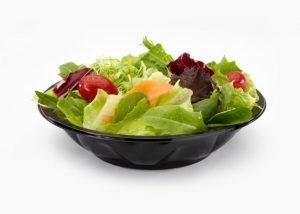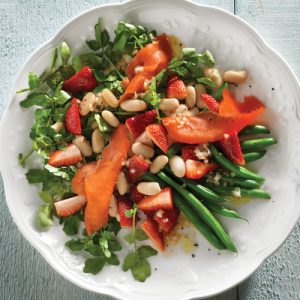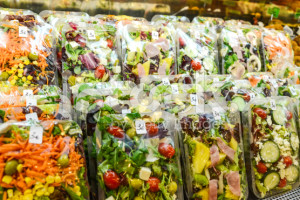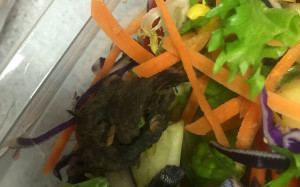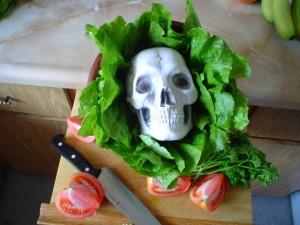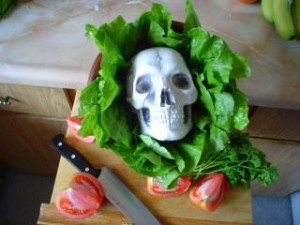Brian Adam of Intallght writes just over a year ago, the United States saw the largest outbreak of E. coli since 2006; affecting at least 98 people in more than 20 states. The origin wa bagged romaine lettuce. Unfortunately, this is not an isolated case. Vegetables and fresh fruit have become a real headache for food safety experts.
 Today in the United States, fresh vegetables are the largest source of food poisoning. In Europe, the figures are not so pristine, but the bacteria and viruses associated with this type of food also are to blame for the vast majority of poisonings. We are facing a real danger for food safety: salads.
Today in the United States, fresh vegetables are the largest source of food poisoning. In Europe, the figures are not so pristine, but the bacteria and viruses associated with this type of food also are to blame for the vast majority of poisonings. We are facing a real danger for food safety: salads.
The numbers speak for themselves
In 1990, more than 400 epidemic outbreaks associated with fresh fruits and salads were detected. Between 2001 and 2013 we are not even able to know in its entirety, some experts explain, how many related outbreaks appeared, but they are many, increasing since 2008. Arrived in 2013, in Europe these epidemics seem to reduce their growth, stagnating in number per year, as explained in this article by EFSA, the European authority on food safety.
Despite the fact that Europe the number of appearances seems to have stabilized, in the United States they have continued to increase. The danger is still lurking, hidden between “romaine lettuce and Brussels sprouts.” The reason is in “cool” words.
According to some independent experts, this increase could be related to the increased consumption of vegetables and fresh fruit in the diet. This is a consequence of the search for a better, healthier diet. But, not being processed, these foods can also bring unexpected and unpleasant surprises.
But what is the problem? What’s wrong with fresh vegetables? It is not that strict food safety controls do not pass, as it happens with everything that arrives at our supermarkets but fresh food, especially if we put it in a plastic bag, is cannon fodder for microorganisms.


